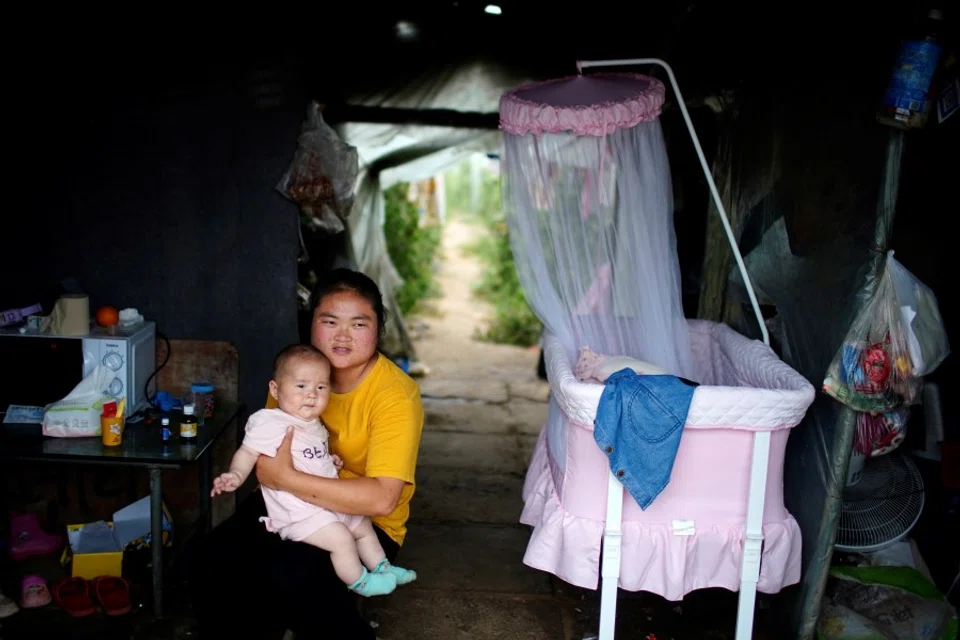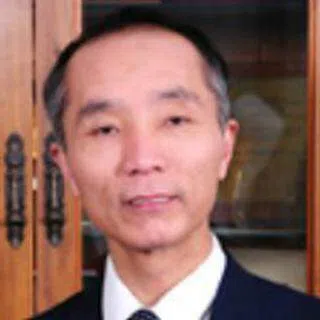China is far from being affluent
Despite slogans and sayings about how China has progressed and become "amazing" or "self-sufficient", making strides in eradicating absolute poverty does not equate to rising affluence on the whole. Looking at GDP per capita figures, China still has some way to go, says researcher Chen Hongbin. He notes that the Chinese people should not get caught up in their own rhetoric, but keep a clear head and be aware of the actual situation.

About ten years ago, "From standing up and getting affluent to becoming strong (从站起来、富起来到强起来)" became a popular saying in China describing its various stages of development. As the simple line concisely and vividly captured the phases of China's revolution, building, and reform, it was quickly accepted by the Chinese people and even included in many key documents of the Chinese Communist Party (CCP).
However, I feel that the line should read "From standing up to becoming affluent and strong". Because since 1 October 1949, at the moment when Mao Zedong declared to the world from Tiananmen that "the Chinese people have stood up", the process of "standing up" ended. And putting "getting affluent" alongside "standing up" would mean that the process of "getting affluent" is also complete, and the only task that remains for the Chinese people is "becoming strong".
China's current per capita GDP has just crossed US$10,000; it was ranked 64th globally in 2020, behind many developing countries. China is still getting past the "middle income trap".
Not out of the woods yet
However, it is common knowledge that even while this slogan was rolled out, some 100 million people remained in poverty in China. And for many years after that, China showed unmatched resolve and determination in launching an unprecedented battle of poverty alleviation, to ensure that no one would be left in poverty and a moderately affluent society would be attained by 2020. Last year, China announced that this goal had been reached.
But this only means that people who were previously in poverty are now free of "extreme poverty". This huge group has never reached the level of moderate affluence, and many among them are likely to have fallen back into poverty due to various reasons including illness. And so, for now, "getting affluent" is not yet in the past tense, but the present continuous tense. It should be paired alongside "becoming strong" as something to keep working towards. Otherwise, the saying would not accurately reflect China's situation.
For those who have just left poverty behind, they are just managing to get by and are by no means comfortable, and even further removed from being affluent. China's current per capita GDP has just crossed US$10,000; it was ranked 64th globally in 2020, behind many developing countries. China is still getting past the "middle income trap".

The Organisation for Economic Co-operation and Development (OECD) has a Development Assistance Committee that provides assistance to developing countries. According to its 2018-2020 report, it assists 143 countries including G20 members China, Brazil, Turkey, and India.
According to the World Bank's latest criteria, countries with a GNI (Gross National Income) per capita below US$1,045 are low-income economies; from US$1,046 to US$4,095 are lower-middle-income economies; US$4,096 to US12,695 are upper-middle-income economies, and those above are high-income economies. Although the definition of a developing (or developed) country is not always clear, going by GNI per capita, one could say that upper-middle-income economies and below are often seen as "developing countries", while high-income economies are usually thought of as "developed countries".
Although China overtook Japan in 2010 as the second largest economy in the world, looking at China's per capita income, which falls under the upper-middle-income economy category, it is still a developing country.
In 2019, South Korea gave up its developing country status, mainly to assuage the strong unhappiness of former US President Donald Trump. However, while Trump's unhappiness appeared to be against South Korea, it was in fact targeted at China. Trump previously tweeted: "The WTO is BROKEN when the world's RICHEST countries claim to be developing countries to avoid WTO rules and get special treatment. NO more!!!"
China is still quite a distance from being a high-income country, and it is still a hard task for it to join the ranks of the developed countries.
The US is engaging in all-around containment of China - pressuring China to give up its developing country status is just one demand. Even when it comes to an organisation with limited significance like the UN's Universal Postal Union (UPU), the US also threatened to pull out of it because it said China as a developing country gets preferential rates in shipping small packages since the receiving party pays the shipping costs, which adds to the US's burden. This was only avoided following changes to the UPU's shipping fees.
As mentioned above, whether a country is considered a developing country is definitely not just about its overall economic scale. The more important indicator is per capita GDP. Going by just the former criterion, Luxembourg would be a developing country, while Myanmar would be a developed country. China is still quite a distance from being a high-income country, and it is still a hard task for it to join the ranks of the developed countries.

In a press conference at the end of last year's Two Sessions, Chinese Premier Li Keqiang revealed a shocking statistic: there are still 600 million people in China with a monthly income of less than 1,000 RMB. One could not survive on this income in first-tier cities like Beijing and Shanghai - the minimum monthly wage in Shanghai is 2,590 RMB. This is sufficient evidence that China is still a distance away from "becoming affluent".
Disparities apparent
China's situation is unique. Its large land area and diverse resources have led to obvious differences between regions, as well as between urban and rural areas, with a clear problem of uneven and insufficient development. The eastern coastal areas are well developed, with a large middle-income group. But even around Beijing, there are many counties that have just been relieved of poverty. And while Guangdong's economic scale is among the top in the country, there is an unimaginably huge gap between the Pearl River Delta and western and northern Guangdong.
As for the poorly developed mountainous regions and deserts in central and western China, not only does the international community lack a good understanding of the situation, even the people in eastern China are at a loss. At the extreme end, there are ethnic minorities living deep in the mountains and forests who have transitioned from a feudal society to China's socialist society in modern times. These people are labelled the "directly transitioned ethnic groups" (直过民族) in China.
Some Chinese have self-declared China as a "powerful nation" (强国), leading to totally irrational lines like "Amazing China" (厉害了,我的国) in the past few years.
According to the criteria of some global institutions, having a per capita GDP of over US$20,000 qualifies as being a developed country, but this is just the "minimum". According to the Chinese government's long-term plan, China will only hit a per capita GDP of US$20,000 by 2035, to become a "moderately developed country".
The slogan "From standing up and getting affluent to becoming strong" would also lead to unnecessary misinterpretations within and outside of China. Some well-known academics in China smugly feel that China has overtaken the US in many areas, while others say that because China's Engel coefficient - expenditure on food as a proportion of household income - has fallen within 30%, China is a developed country.
Some Chinese have self-declared China as a "powerful nation" (强国), leading to totally irrational lines like "Amazing China" (厉害了,我的国) in the past few years. But even in China, such comments do not go down easily for the majority, and many have questioned academics spreading such views, even to the point of issuing joint letters calling for their removal.
Development remains a top priority
The Chinese government is well aware of China's true situation. The report to the 19th National Congress of the CCP stated two points that have not changed: China is in the initial phases of socialism and will stay so for a long time, and China remains the largest developing country in the world. Development remains the top priority for the CCP in governing and rejuvenating China.
A century ago, Argentina became a moderately developed country, crossing the US$10,000 per capita GDP mark. But even until now, for years Argentina has hovered around that mark, becoming a specimen of the middle-income trap.

Since China began its peaceful rise, the international community has been "killing" China with praise of sorts, in thinking that China is already a developed country and calling for it to take on the associated responsibilities. The problem is, slogans such as the one mentioned in this essay also provide ammunition for people to misjudge China as a developed country.
A century ago, Argentina became a moderately developed country, crossing the US$10,000 per capita GDP mark. But even until now, for years Argentina has hovered around that mark, becoming a specimen of the middle-income trap. If China wants to avoid making the same mistake, it has to stay clear-headed - it cannot get swell-headed and revel in momentary success. That would ruin its previous efforts.
It is clear that only when a country has an accurate and rational grasp of its own level of development can it avoid or reduce unnecessary detours in its path. And accurate rhetoric would help the Chinese people to better carry through the idea of socialism with Chinese characteristics in the Xi Jinping era, and truly "get affluent" while firmly moving towards "becoming strong", to successfully build a modern socialist power.
Related: China is now 'a moderately affluent society'? | Chinese researcher: This is how China gets rid of poverty | Lifting 'the poorest of the poor' out of poverty in Sichuan: Does poverty alleviation mean uprooting people from their homes? | An apple tree in Shaanxi tells a story: China's quest to eradicate rural poverty





![[Photos] Fact versus fiction: The portrayal of WWII anti-Japanese martyrs in Taiwan](https://cassette.sphdigital.com.sg/image/thinkchina/3494f8bd481870f7c65b881fd21a3fd733f573f23232376e39c532a2c7593cbc)